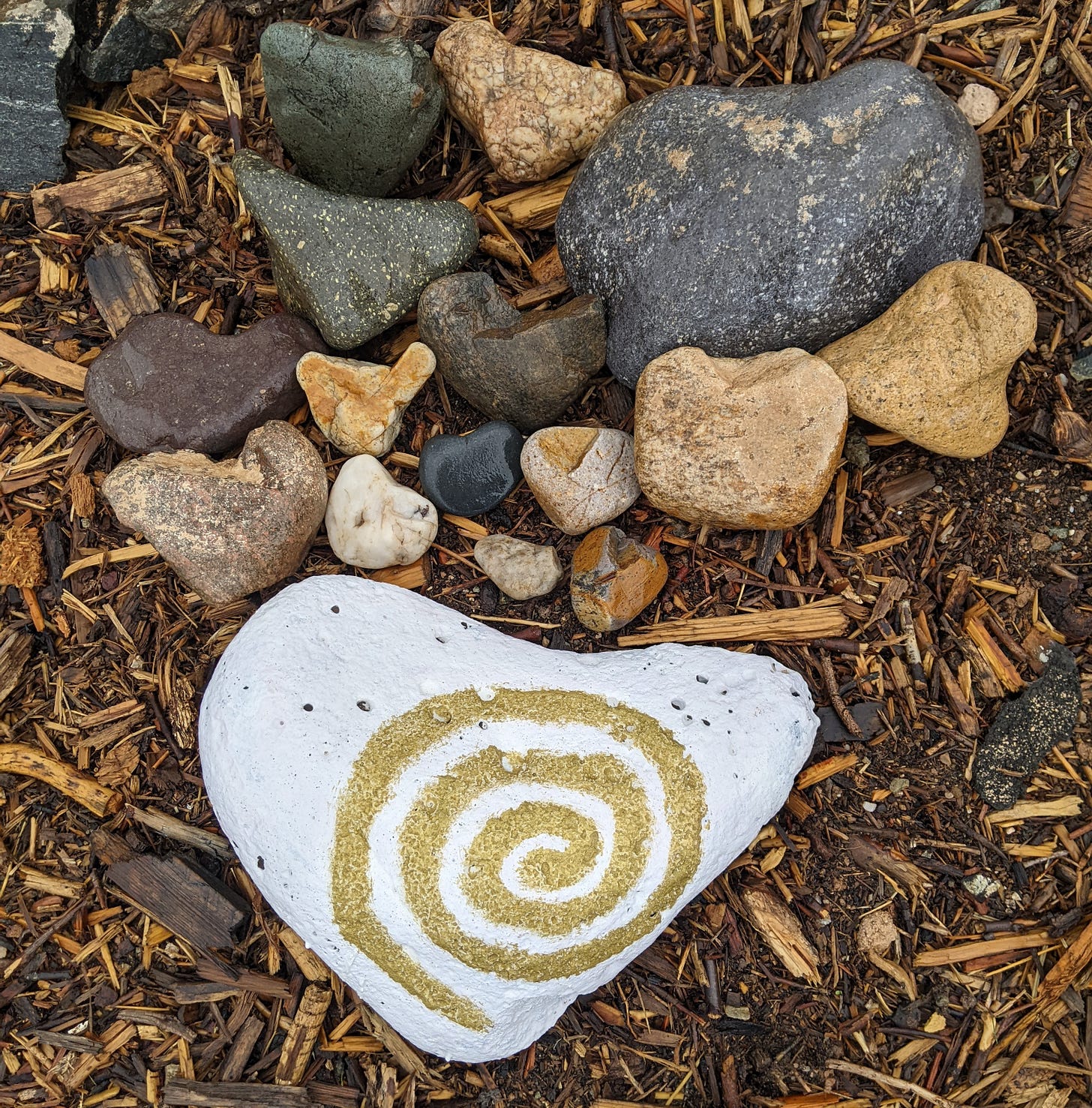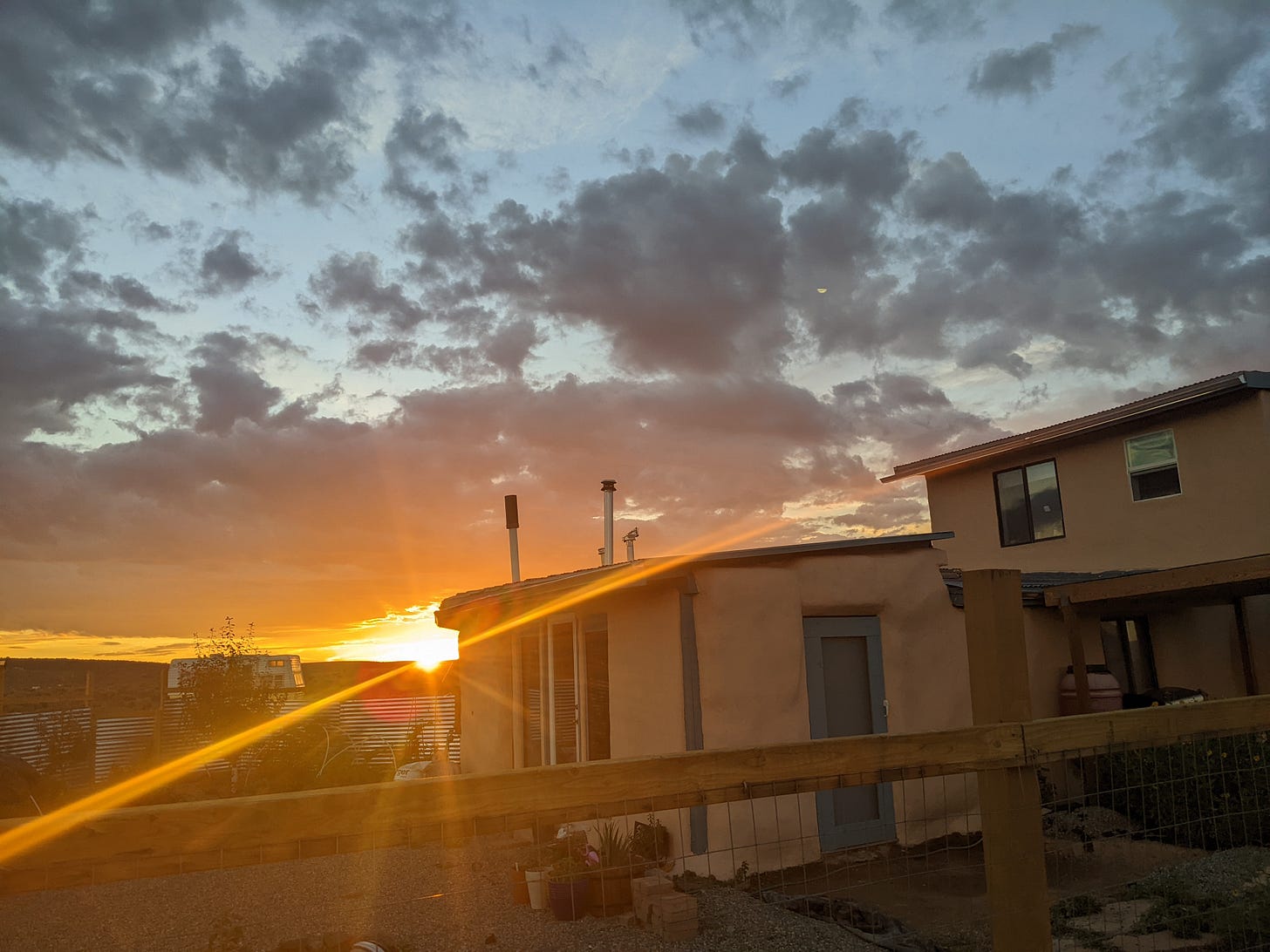What If Everyone Lived Like This?
Small Shifts to Protect Earth’s Life Support Systems
Climate Deniers Still Exist
My brother doesn’t believe in climate change. Maybe your brother doesn’t either, or your uncle or your neighbor or coworker. That’s because there is a population of people in the world who think climate change is either not real or is not related to human activity. According to a 2024 study, nearly 15% of Americans deny climate change.
According to my brother, scientists who disclaim climate change are being repressed and that’s why you don’t hear from them anymore.
I don’t bother arguing with my brother. Our political views are way too different and our time together is too precious. But when he mentioned this conspiracy, he finally crossed the line. I explained to him, “The reason you don’t hear from scientists anymore disputing climate change is because it has been proven without a doubt by the scientific community that it exists and is caused by humans.”
“Nope,” he said, “the science is being repressed.” Fortunately, my mother interjected our debate and said it’s time to go.
To be clear: there is no remaining scientific doubt about whether climate change exists, or that human activities are the primary cause of recent global warming. The scientific consensus is overwhelming and has been repeatedly affirmed by major scientific organizations and research institutions worldwide.
But I’m glad I heard my brother’s ideas because it reminds me that our work is not done. There is still a need to spread the word and make changes.
Planetary Boundaries
Planetary boundaries are a science-based way to mark the environmental limits we shouldn’t cross, each one tied to the planet’s ability to stay stable and livable.
The idea came from a group of scientists led by Johan Rockström, then head of the Stockholm Resilience Centre. They introduced it in a 2009 Nature article that quickly became a landmark in environmental science. The framework outlines how much pressure Earth's systems can take before things start to unravel.
These boundaries aren’t just academic; they represent the zone in which human life can thrive. Go past them, and we risk tipping Earth into dangerous instability, creating sudden climate shifts, collapsing ecosystems, and other impacts we can’t easily reverse.
The nine boundaries are:
· climate change
· ocean acidification
· ozone depletion
· biogeochemical flows of nitrogen and phosphorus
· freshwater use
· land system change
· biosphere integrity
· chemical pollution
· atmospheric aerosols
I had to look some of these up. The biosphere boundary, once just “biodiversity loss,” now includes the overall health of ecosystems, not just species counts.
Biogeochemical flows track how key elements like nitrogen and phosphorus move through air, water, soil, and living things. These cycles keep life running and without them, plants wouldn’t grow, animals couldn’t reproduce, and microbes would not function. Human actions, such as industrial farming and heavy fertilizer use, have thrown these natural cycles out of balance.
Land system change refers to reshaping Earth’s natural landscapes on a massive scale, such as clearing forests, paving over ecosystems, and turning wild areas into farms and cities. These changes disrupt the balance that keeps the planet stable.
As of recent assessments, six of the nine planetary boundaries have already been crossed, including climate change, biodiversity loss, and biogeochemical flows. The more boundaries we cross, the higher the risk of pushing Earth into a hostile habitat for human and other-than-human beings.
The scientists behind the framework stress the need for collective action that looks at the system holistically. Since everything is interconnected, fixing one boundary often helps another. So instead of focusing on only one issue, we need to do our best to address all the issues.
This can feel overwhelming for me as soon as I start considering the litany of issues this might include such as reduction of greenhouse gas emissions, habitat rewilding, reforestation, soil regeneration, wetlands conservation, transition to renewable energies, urban densification, pollution regulations, instituting circular water systems, banning synthetic fertilizers, organic farming, eliminating plastics, decreasing meat consumption, phasing out coal and oil and so on and so on.
These all seem like obvious necessary systematic changes, but progress is frighteningly slow. Currently, the administration in the United States is deregulating environmental protections and moving us in the wrong direction, the one towards crossing more planetary boundaries.
Choose Sustainability
There is something that you can do as an individual.
Slow living and off-grid choices are practical ways to align daily habits with the planetary boundaries.
Slowing down consumption and practicing mindfulness leads to more intentional decisions that can reduce our human impact on the environment. Becoming more aware of your resource use—energy, water, food, and materials—makes it easier to cut waste and shrink your environmental footprint.
Off-grid living reduces pressure on planetary boundaries related to energy production, water extraction, and pollution. Disconnecting from conventional utility systems and relying on renewable resources such as solar power and rainwater means that off-grid homes typically consume far less energy and water than grid-connected ones.
Eric and I catch all our water off the roof and if it doesn’t rain enough, we haul a cistern to the community well to buy water. Since we live in the desert, we are very aware of when it rains and when it doesn’t for a long while. We enlarged our roof this year to catch even more water. So, when we open our faucet, we do our best to make every drop count. Usually when I am washing dishes at other people’s houses, they notice that I am in the habit of consciously conserving.
What impact would this have if everyone did this?
The same can be said for collecting our own power. We unplug everything that’s not in use because our supply of power is limited to our battery supply. The constraints of generating your own power and managing your own water supply naturally foster a culture of conservation and minimalism, where every drop and every watt is valued.
Small Shifts Can Make a Big Difference
Lifestyle choices that demand constraint reduce our impact on the planet. Constraint is often uncomfortable and “weird” in a culture that glorifies consumption. But glorified consumption is a means of selling you more things that you don’t need so you will feed the waste economy.
Each day is an opportunity to reevaluate your values and take note of how much you are doing to align with what you care about. Some choices big and small might include:
· drive an electric car
· don’t drive a car
· live in a tiny home or van
· practice minimalism
· keep a capsule wardrobe
· buy organic
· organic garden
· take shorter showers
· recycle
· compost
· practice zero waste
· unplug your televisions at night
· utilize reusable totes
· only buy what you need
· eat less meat and dairy
· choose minimal packaging
· buy cleaning and beauty products with less chemicals
· avoid single-use plastic
This is obviously not a comprehensive list but notice how there are small changes here that you can make right now. The reward of not adding to the demise of our planet should be enough, but there is another reward—living well, living slow, living intentionally. Connecting with the natural cycles in a way your ancestors did for centuries is what your body inherently craves. You find more peace in your world and within when you make choices that align with what is best for you and generations to come.
Not everyone is going to understand the urgency. But maybe you will. Maybe knowing that others are still in denial after all this time will create even more urgency for you. I hope it does. We need a little proverbial fire under our asses because the world is burning.






Yay living in a van made the list!
I had never heard of the planetary boundaries before. Going to read about them. Terrifying only three haven’t been crossed but not surprising.
You didn't listen to your brother. You heard a keyword—conspiracy—and your brain slammed shut like a rusty bear trap. You patted him on the head, secure in your cocoon of "settled science," and completely missed the point.
He told you the truth to your face: "the science is being repressed." And he's goddamn right. But it's not just a few brave souls being silenced. It's the entire premise of your argument that's the lie. The "scientific consensus" you cling to is a wall built to keep you from looking at the real data. It's a professional protection racket.
You think this is about CO2? My God. That is the most successful public relations scam in human history. A convenient, taxable, and controllable scapegoat for a planetary process so vast and violent it would make your brain run out of your ears.
The planet is not sick because of your SUV. The planet is in the grip of a predictable, repeating, 12,000-year catastrophe cycle. The Earth's magnetic field is weakening, the poles are getting ready to flip, and the sun is entering a phase that is going to rock this entire solar system. That's why the volcanoes are waking up. That's why the earthquakes are on an exponential curve. That's why the oceans are changing their chemistry from the bottom up, not the top down.
This is the science that's being repressed. The work of the real geophysicists, the plasma physicists, the people who are not on the payroll of the globalist swine who need you terrified of your own carbon footprint. Why? Because they can't tax a geomagnetic excursion. They can't pass legislation against a galactic current sheet. But they can tax you.
And your solution? Your list? Jesus Christ. "Live in a tiny home." "Practice zero waste." You are offering a band-aid for a sucking chest wound. You're telling people to tidy their cabins while the whole ship is breaking apart on the rocks. These aren't "small shifts to protect Earth's life support systems." They are meaningless rituals to make you feel better while you ignore the abyss that's opening up right under your feet.
You're not spreading the word. You're spreading the anesthetic.